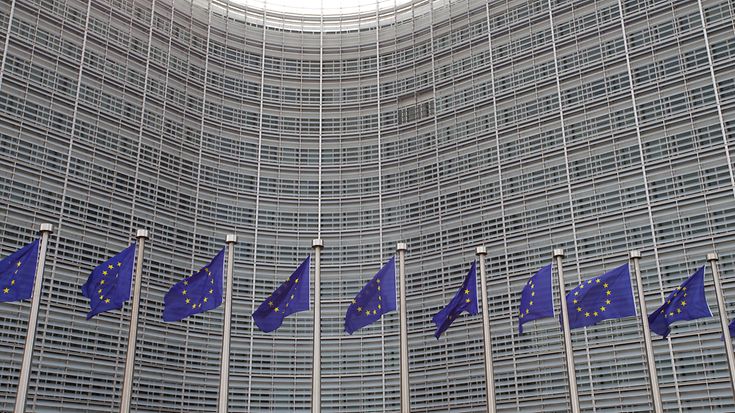GDV on Commission Work Programme: Opportunities for relief, FiDA remains problematic
The EU Commission is focusing on competitiveness with its 2025 Work Programme. GDV sees this as an important step towards a stronger European capital market and less red tape, but emphasises the need for a less burdensome framework.

The Commission presented its Work Programme for 2025 today, providing momentum for competitiveness, simplification and innovation. The insurance industry sees this as an opportunity that must be grasped.
“The Work Programme shows that Europe wants to become more economically resilient. This is the right way forward. A stronger European capital market and less red tape can also strengthen the insurance industry,” said Jörg Asmussen, Chief Executive Officer of the German Insurance Association (GDV). The association highlights that the unique role of German and European insurers can be a decisive factor for the competitiveness of the EU economy, provided that less burdensome framework conditions are put in place.
FiDA: First opportunity for relief not used
The Commission's Work Programme serves as a roadmap for legislative initiatives in 2025, and the specific details of the programme items are expected in the coming weeks. An initial opportunity to ease the burden will be missed by continuing to pursue the Financial Data Access Regulation (FiDA). FiDA aims to make financial data of customers accessible to selected financial service providers and third parties in order to support digital developments in the financial sector. “However, the proposal in its current form is hardly viable,” said Asmussen.
The GDV has strongly criticised on several occasions that the draft Regulation is associated with considerable additional financial and personnel costs without offering any discernible benefits. “It would have been a clear and appropriate signal in favour of simplification if the Commission had completely withdrawn the FIDA proposal. This opportunity was not used,” Asmussen said.
Omnibus Packages have the potential to cut red tape
The announced Omnibus Simplification Packages have the potential to strengthen Europe's competitiveness in the long term. “We expressly support the objective of sustainable transformation. However, the large number of requirements are blocking change. Sustainability information is important – its quality must increase, its quantity must decrease.”
Another positive step is the planned introduction of staggered reporting requirements for medium-sized companies. The association stresses that the special features of the insurance industry must be taken into account. Asmussen said: “Easing the burden on small and medium-sized companies is important. The rigid criteria for the real economy must not be transferred one-to-one to the insurance industry.” Insurers with relatively few employees can quickly exceed the stipulated balance sheet and turnover thresholds. “Then a small insurer with a handful of employees has to fulfil the same requirements as a DAX-listed company. That can't be right,” Asmussen said. The thresholds should therefore also take into account the number of employees in addition to the financial dimensions.
Savings and Investment Union: Key to a stronger EU capital market
The GDV emphatically welcomes the announcement that the Savings and Investment Union (SIU) will be pursued further. It is meant to mobilise private savings specifically for investments and thus close the financing gap for the digital and sustainable transition. “The fragmented capital market is a competitive obstacle compared to economic powers such as China or the USA.” Around 70 per cent of the capital investments of German insurers and reinsurers already stay within the Eurozone. “With EU-wide minimum standards, for example in insolvency law, we can contribute even more to the business location and for our customers,” Asmussen said.
About the Work Programme
With its Work Programme, the Commission presents its political priorities and planned legislative initiatives for the respective year. It serves as a planning tool for the EU institutions to coordinate the Commission's work with that of the European Parliament and the Council. In addition to investment and cutting red tape, the Work Programme for 2025 also addresses other key topics for the future, including sustainable finance, artificial intelligence and cybersecurity.